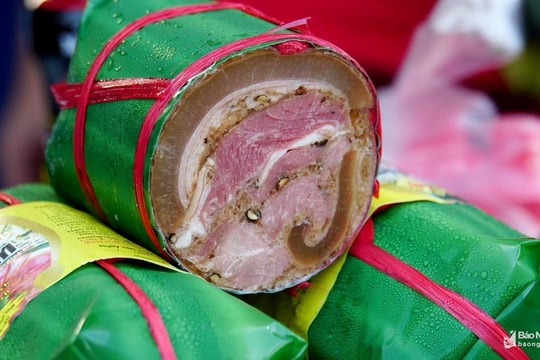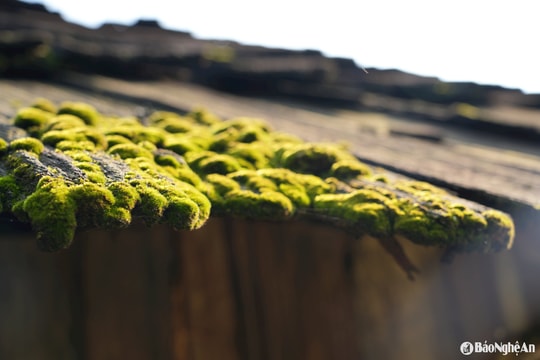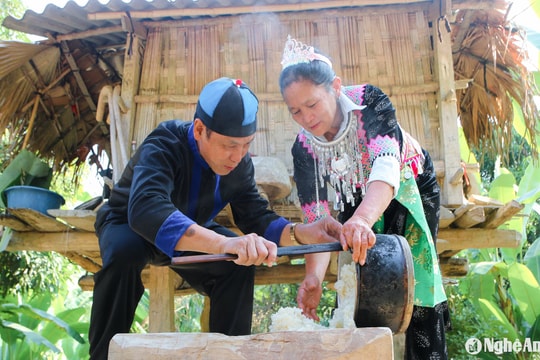Ky Son ancient Shan Tuyet tea - Potential needs to be awakened
Ancient Shan Tuyet tea is a special type of tea with large buds covered with a layer of smooth gray-white hairs – this is the characteristic that gives it the name “Shan Tuyet”. These precious tea trees exist in Ky Son district.
Treasure from the great forest
Shan Tuyet tea trees only grow in high mountains above 1,200m, with a cold climate all year round, covered in clouds and fog, and a large temperature difference between day and night. Because of the harsh terrain and long life, the tree trunks are large, and people have to climb up to pick the young tea buds.
According to Decree 64/2010, ancient trees are defined as trees with a minimum age of 50 years or a diameter of 50cm or more at a height of 1.3m. However, according to Professor Dr. Nguyen Quoc Vong - a leading expert on tea trees, a truly ancient tea tree must be over 100 years old, 3m high and have a root diameter of 20cm or more - based on the tea variety in Cau Dat planted during the French colonial period in 1927.
The special thing is that ancient Shan Tuyet tea mainly grows naturally, almost untouched by humans, so it has outstanding organic quality. The content of beneficial active ingredients such as: Polyphenol, Catechin, L-Theanine and minerals such as potassium, calcium, magnesium... is exceptionally high, 20-30 times higher than industrial tea, according to Professor Nguyen Quoc Vong. In particular, ancient Shan Tuyet tea has a lower caffeine content, still retains the ability to help stay awake but does not cause insomnia or stimulate the nerves like some other types of tea.
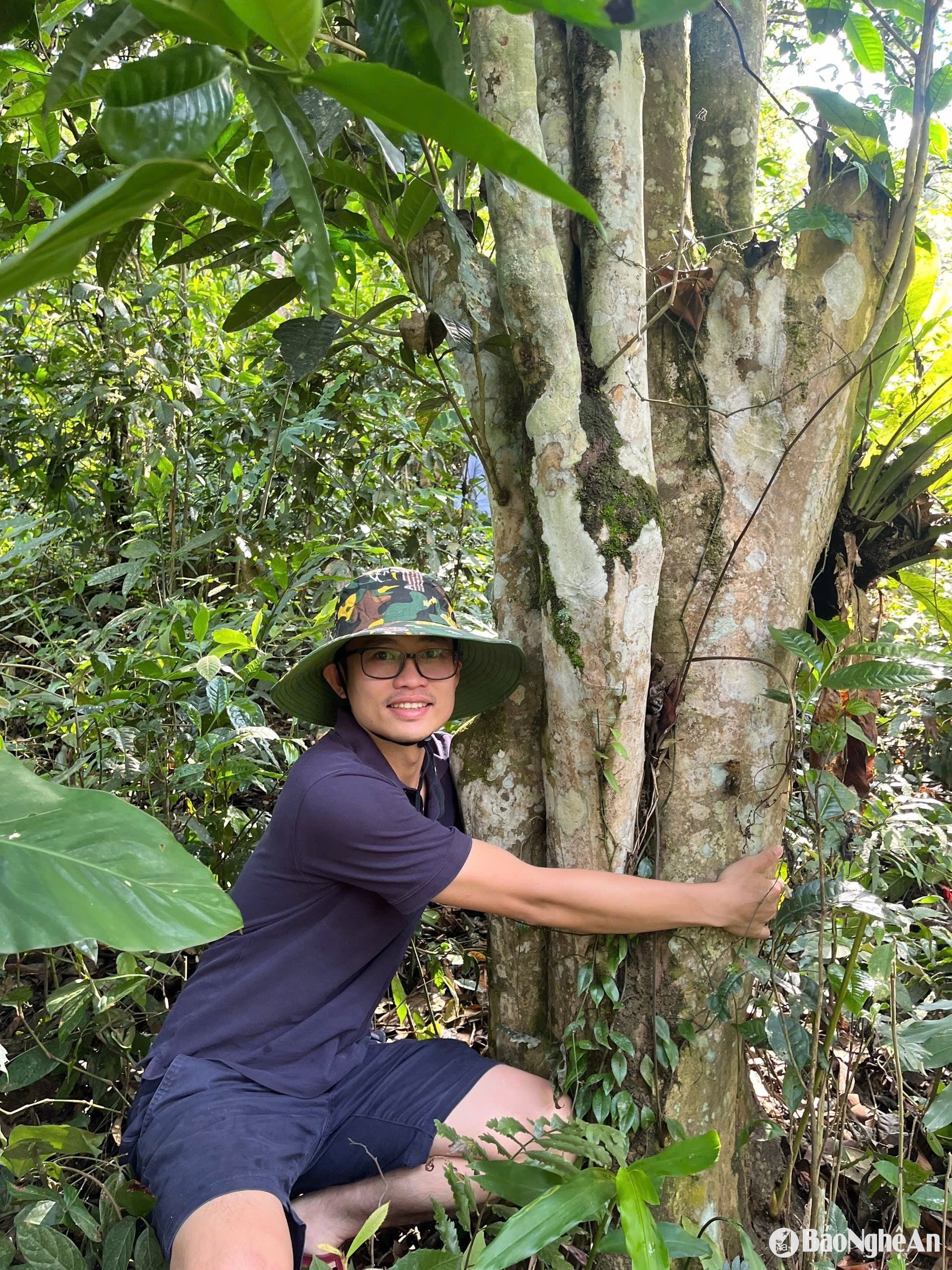
In Vietnam, ancient Shan Tuyet tea trees are naturally distributed in many northern mountainous provinces such as Dien Bien, Son La, Lao Cai, Yen Bai, Ha Giang... Of which, Ha Giang has the largest area of Shan Tuyet tea, with about 18,726 hectares (2017 data), many trees are over 900 years old. There are about 1,300 ancient Shan Tuyet tea trees recognized as heritage trees. Although there have been opinions that this type of tree was brought over by the Chinese or the French to plant, many local elders affirm that Shan Tuyet tea has been present in the forest since ancient times, and is completely a native variety.
Taking advantage of this unique value, many businesses have now cooperated with people to harvest, process and produce high-quality tea products such as: Green tea, white tea, black tea, Pu-erh tea..., some of which cost up to tens of millions of VND/kg. Some famous brands from ancient Shan Tuyet tea such as: Suoi Giang Shan Tuyet Tea, Tay Con Linh... have contributed to helping people, especially ethnic minorities such as Mong, Dao, Tay... increase their income, while at the same time, promoting community tourism associated with local identity.

The essence of Nghe An tea
Ky Son is a mountainous district in the West of Nghe An, located at the junction between the tail of Hoang Lien Son range and the head of Truong Son range. This location makes Ky Son a unique biological transition zone, where many rare species converge such as: Puxailaileng ginseng, 7-leaf 1-flower ginseng, Ngoc Cau mushroom... and especially ancient Shan Tuyet tea.
According to a survey by the Ky Son Protective Forest Management Board and Mr. Dao Quang Vu - the person who directly processes Shan Tuyet tea locally, in Na Ni, Huoi Uc 1, Huoi Uc 2, Pha Bun villages (Huoi Tu commune), there are currently over 100 hectares of forest distributing ancient Shan Tuyet tea trees. Mr. Vu Xia Chong's forest in Na Ni village alone has over 1,000 ancient Shan Tuyet tea trees, some of which are hundreds of years old, with trunks so large that one person cannot hug them. The tea trees here grow in clusters, with different ages and sizes, and because they are not harvested, the trunks grow from 6 to 10 meters high.
Mr. Vu brought the tea sample from Huoi Tu commune to be appraised by experts and clearly identified it as the ancient Shan Tuyet tea variety. Furthermore, according to experts, perennial plants that have not had their buds picked will have a strong bitter taste, and this bitterness will gradually decrease when the plants are harvested regularly.
What is special is that across the border, in Paek district, Xieng Khouang province (Laos) - the area bordering Ky Son district, there are also ancient Shan Tuyet tea populations that are being preserved and exploited effectively. Here, there is a tea tree over 1,000 years old that has been recognized as a Lao National Heritage Tree. This further strengthens the view that Shan Tuyet tea in Ky Son district is a natural native variety, with high biological and heritage value.
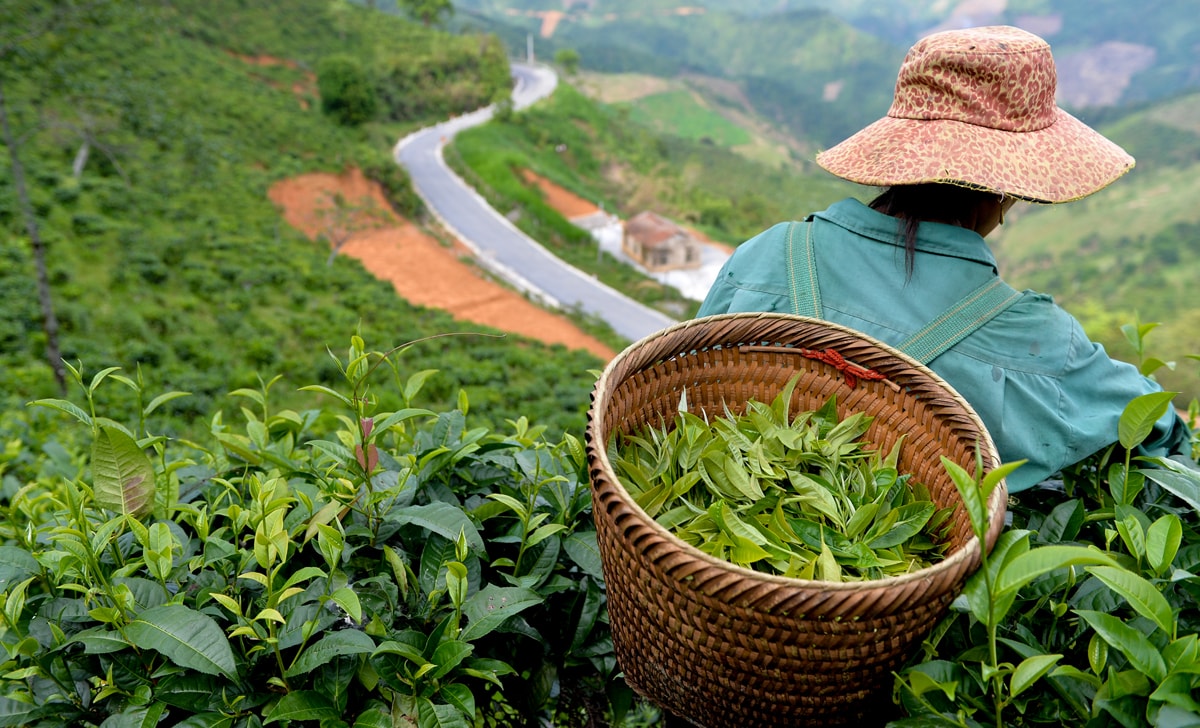
Currently, there is a company that is purchasing and processing Shan Tuyet tea in Huoi Tu commune. In addition to the newly planted Shan Tuyet tea, the company has also started to exploit and produce Shan Tuyet black tea from ancient tea trees. These products are highly appreciated by the market for their quality, flavor and safety.
It can be said that, along with rare species such as Puxailaileng ginseng, tea vine, 7-leaf 1-flower ginseng, etc., ancient Shan Tuyet tea is a rare gene pool, providing opportunities for Ky Son district to develop its economy in association with nature and cultural conservation. In addition to processing from Shan Tuyet tea materials grown in Huoi Tu commune, the above-mentioned company has begun to purchase and process Shan Tuyet black tea products from raw materials harvested from ancient tea trees. Products made from Huoi Tu Shan Tuyet tea are highly appreciated by the market and consumers. It can be said that these are rare gene pools, along with Puxailaileng ginseng, 7-leaf 1-flower ginseng, ginseng vine, tea vine, etc. Ancient Shan Tuyet tea brings potential and opportunities for Ky Son district to develop in its own way.
However, at present, the ancient Shan Tuyet tea trees in Ky Son district have not received proper attention. No State agency has specifically surveyed or counted them. There has been no advice or guidance for people to protect and exploit them. There is no plan for conservation and protection. Therefore, there are trees with a base diameter of over 20cm that have been cut down by people.
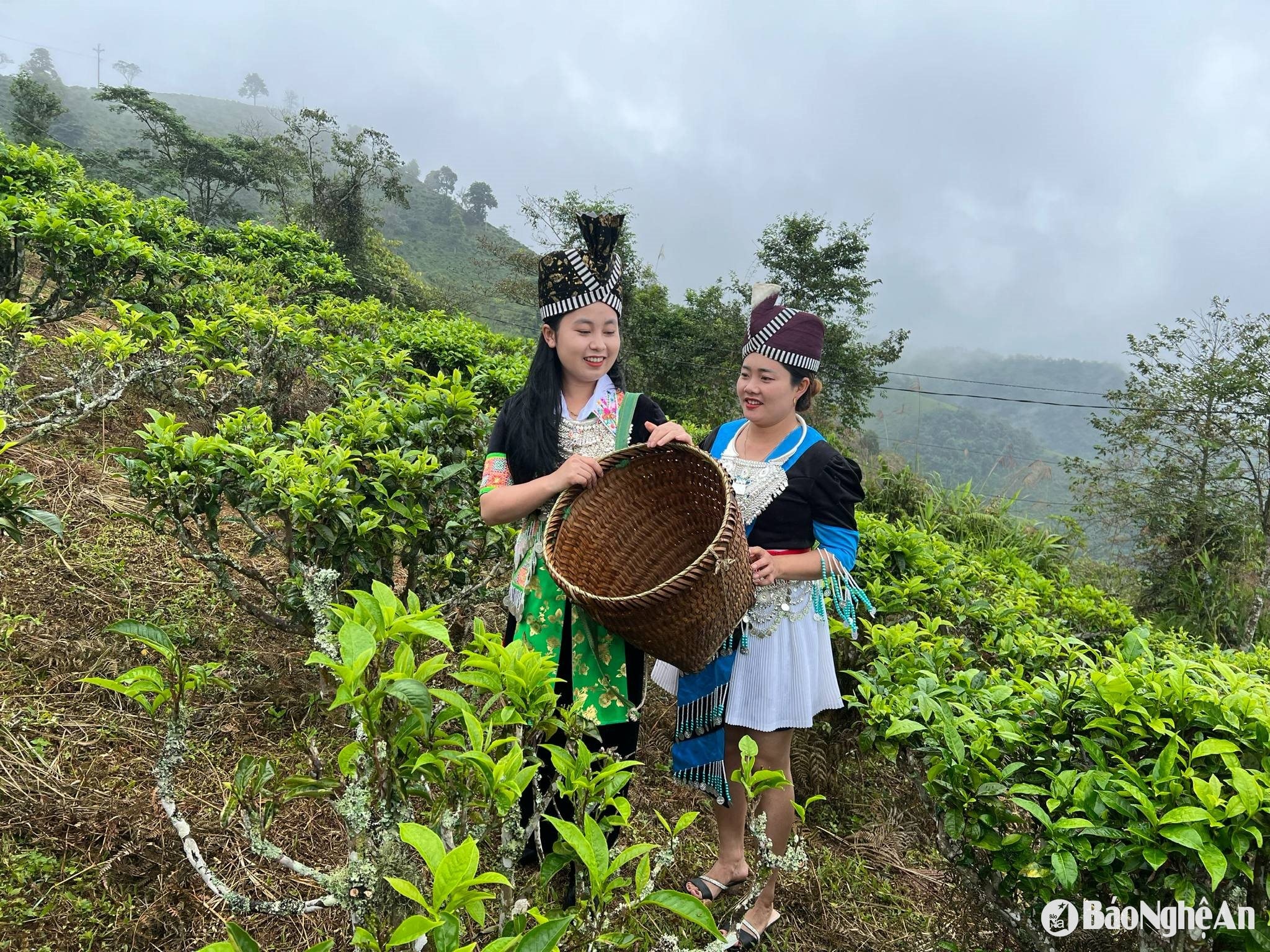
To preserve, exploit and promote the value of this rare genetic resource, we would like to propose the following issues:First, invited experts from the Vietnam Tea Association (Professor Nguyen Quoc Vong) to survey and evaluate the value of the ancient Shan Tuyet tea population in Ky Son district.
Two is, organize surveys, count, number trees, and determine the age of Shan Tuyet tea tree populations in Huoi Tu commune and other areas in the district. Immediately deploy a task of "Conserving, exploiting and promoting the value of ancient Shan Tuyet tea gene sources in Ky Son district". Build a dossier to propose the recognition of some trees as Heritage Trees.
Three is, training and instructing people on how to prune, shape the canopy, care for, protect, and exploit trees, thereby connecting with companies to organize the purchase and processing of high-quality specialty products to promote the value and uniqueness of ancient tea trees. Implementing a plan to propagate and support the planting of native Shan Tuyet tea for people in the region.
Fourth,From the story of the ancient Shan Tuyet tea tree, promote the image and introduce products to build the Huoi Tu Shan Tuyet tea brand (Ky Son). Connect the ancient Shan Tuyet tea area, My Ly ancient tower, Muong Long heaven gate, cherry blossom area, cloud hunting spots... to build eco-tourism spots, community tourism, cultural tourism of Mong, Kho Mu ethnic groups, etc.
As a region with a strongly fragmented terrain, the economic life of the people is still difficult, but with rich biodiversity, rich cultural diversity, and unique natural specialties, it is thought that Ky Son district can turn disadvantages into outstanding comparative advantages for development. In particular, Shan Tuyet tea is an indigenous tree that can be developed on a large scale to promote its uniqueness. First of all, it is necessary for specialized departments and branches to support Ky Son district in preserving, exploiting and developing the current population of ancient Shan Tuyet tea trees.

